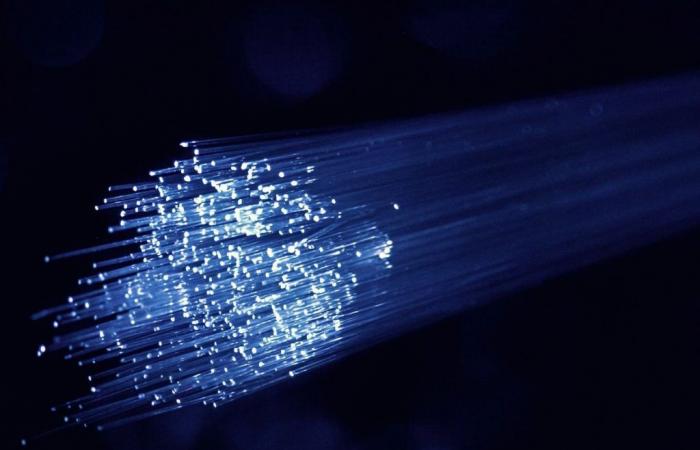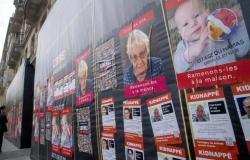The last fiber optic connections were known to be the most difficult. But they may not come to fruition due to a lack of budget, reports Le FigaroSunday, June 30. Today, nearly 38 million homes are now eligible for fiber (87% of homes in France), a success when you consider that this figure was reached in just 10 years. But today, nearly 5.5 million homes have still not been connected to fiber, according to Arcep.
Which is a problem, given the France Very High Speed Plan (PFTHD) launched in 2013, the last part of which would be particularly difficult to implement. According to the PFTHD, the French should have access to a fiber optic Internet connection (i.e. very high speed) by the end of 2025, i.e. at the end of next year.
As a reminder, the territory had been divided into three parts:
- ZTDs, very dense areas (therefore metropolises or large cities)
- AMII areas, medium density, where the historic operator Orange, as well as SFR, have committed to deploying fiber (therefore medium-sized towns),
- RIPs, public initiative zones, in which communities are responsible for deploying their own networks, with financial assistance from the State.
Also read: 5G continues to progress in France, 4G largely dominates
Reduction in budgets, commitments…
The problem is that in recent years, the rate of connections has fallen sharply. The decision taken by the government last February, which was looking to make savings, did not help: the executive decided to reduce its budget for the deployment of fiber by 150 million euros in 2024: unplanned budget cuts that have put consumer associations and members of the sector on their feet.
In an open letter published in the pages of The galleryon February 26, 2024, Avicca (the French Telecoms Federation, the lobby of operators, and communities involved in digital technology) and InfraNum (the digital infrastructure sector) believe that this surprise budget cut undermines the objective of fiber for all by 2025. Especially since ” The remaining deployments are the most difficult ” The news also provoked the ire of UFC Que Choisir. In a post published last June, its president denounced a government that is abandoning its ambitions.
Added to this is the fact that Orange has revised its coverage commitments downwards (compared to what was initially planned), according to the agreement concluded between the historic operator and the State last March, which nevertheless allowed the machine to be restarted, according to the government.
Orange and SFR ordered to connect 600,000 homes in medium-sized towns
However, deployments are restarting in AMII zones, and in particular ” in the 55 intercommunalities which were the most behind. This is a good thing for these territories », said Laure de La Raudière, president of Arcep, questioned by Le FigaroThe telecoms regulator also demanded that:Orange and SFR will connect 600,000 homes in these medium-density areas (AMII) by December 31, 2025, under penalty of a fine, our colleagues detail.
But the problem is that there are still a significant number of complex connections to be made, sometimes with completely unusable infrastructures. According to InfraNum (which represents digital infrastructure players), there are 440,000 complex cases, which would represent a cost of 1.3 billion euros. Interviewed by Le Figaro, Philippe Le Grand, president of InfraNum, estimates that ” For individuals, paying for this type of work, which can cost up to 3,000 euros, is not possible. “For their part, the communities are concerned about the long-term financing of these telecom networks for which they are responsible, in the RIPs.
Who will pay the bill? The actors pass the buck
Who will pay the bill? For the moment, the players in the sector seem to be passing the buck. While industrialists and communities deplore the government’s lack of ambition, Bercy points the finger at operators including Free, who do not support this project.
In the meantime, the number of disputes related to fiber connection reported to the UFC Que Choisir association has multiplied. From 2022 to 2023, they increased by 64%. The same story at Arcep, which notes that the main subject of reported disputes remains fiber. “Dissatisfaction with fixed internet access, and particularly with the deployment of optical fibre, is once again very much in the majority this year” explained the telecoms regulator during the presentation of its latest customer satisfaction observatory last February.
A right enforceable against fiber?
The question of the last connections is all the more problematic since the copper is in the process of being closed: this network will be completely switched off in 2030.
Also read: Copper network closure: here’s what could change for you
To avoid having French people who are completely disconnected or dependent on work that they cannot do or that no one wants to pay for, UFC Que Choisir is calling for the establishment of a right enforceable against fiber.
This right would allow users to obtain compensation or to cancel a subscription without charge, if the connection is poorly made or if it does not work. This idea has been discussed for a while: if a bill to this effect was adopted in the Senate, it has never been included on the agenda in the National Assembly.
To not miss any news from 01net, follow us on Google News and WhatsApp.
Source :
Le Figaro






